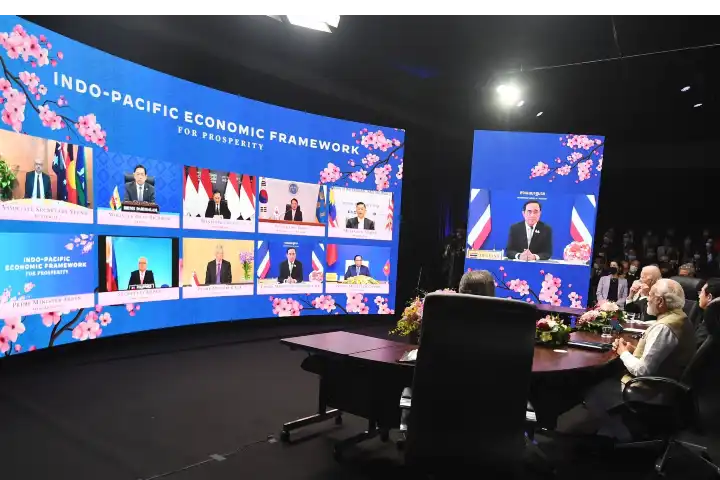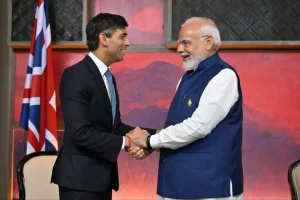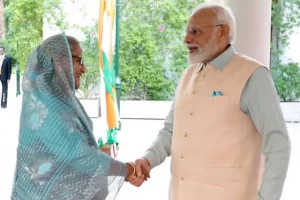The 13 member Indo Pacific Economic Framework (IPEF), kicked off at the QUAD summit in Tokyo, is an emphasis of the growing importance of regional blocs and their functioning amid geopolitical shifts.
A joint statement issued by the members said “We share a commitment to a free, open, fair, inclusive, interconnected, resilient, secure, and prosperous Indo-Pacific region that has the potential to achieve sustainable and inclusive economic growth. We acknowledge our economic policy interests in the region are intertwined, and deepening economic engagement among partners is crucial for continued growth, peace, and prosperity,” a joint statement said.
While the agreement, based on four pillars– trade; supply chains; clean energy, decarbonisation and infrastructure; tax and anti-corruption, has the potential to turn into a formidable structure, the contours and the efficacy of the IPEF will depend on future negotiations among member countries, which would need to iron out differences on certain issues.
For instance, India and the US do not share similar stance on issues such as labour and environmental standards.
Analysts told India Narrative that the framework must also be in sync with India’s thrust in achieving self-reliance and adhering to the Aatmanirbhar Bharat plank.
“The IPEF has just taken birth, it is at a nascent stage. “We believe that the ethos of the Aatmanirbhar Bharat will remain central to any economic framework that India is a signatory and for PM Modi the Aatmabirbhar plank is very important. The core of diplomacy in any global forum will have to be according to India’s interests,” Swadeshi Jagran Manch national co-convenor Ashwani Mahajan told India Narrative.
India had pulled out of the Regional Comprehensive Economic Partnership (RCEP) in 2020 saying that the trade pact would not be beneficial to its own domestic manufacturers.
Though it is not a free trade agreement and will not replace the China driven RCEP, Beijing is also closely watching the developments.
Sandip Ghose, current affairs analyst added that at this stage the IPEF “more a statement of intent”. “Unsure how far the US will push it immediately. But it might make China revisit RCEP framework to make it more conducive to its partners,” he added.
Besides the QUAD members—India, US, Australia and Japan, Brunei Darussalam, Indonesia, Republic of Korea, Malaysia, New Zealand, Philippines, Singapore, Thailand along with Vietnam are signatories to this mega agreement.
“We will have to wait and watch how a few issues relating to labour, energy and environment are taken up,” Mahajan said.
US President Joe Biden had mooted the idea of IPEF in October 2021 at the East Asia Summit. “United States will explore with partners the development of an Indo-Pacific economic framework that will define our shared objectives around trade facilitation, standards for the digital economy and technology, supply chain resiliency, decarbonization and clean energy, infrastructure, worker standards, and other areas of shared interest," he had said.
Meanwhile, Taiwan’s exclusion from the pact has surprised many foreign policy watchers. The US based news organisationPolitico said that “despite an appeal last week from 52 senators that Taiwan be allowed to join the talks, it was left out, presumably because that would anger China and discourage other countries from participating.”
Also read: PM Modi spells ' Make in India for the world' mantra to woo Japanese investors now wary of China
US includes India, Japan in new 13-nation Indo-Pacific economic group to counter China




















